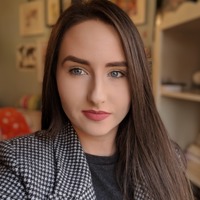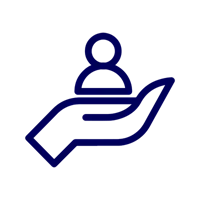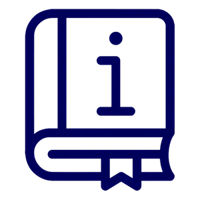
Christie Campbell
Systems Engineer at Belcan
"Do what you were born to do. You just have to trust yourself" - Beyoncé .
Don't let anyone tell you that you can't do something you want to. With a bit of work you will. No career path has to be permanent, you can always pivot later.
About Christie...
Who am I?
"My personality types are Communicator, Coordinator and trainer which I think has got me pretty accurately. Communicator: As a shy introvert whose worst nightmare was being asked to do a presentation at high school, a communicator isn't something I thought I would ever describe myself as. However, as I've grown I realised that listening is the most important aspect of communication and finally started to believe all of the people that say \"there is no such thing as a silly question\". There really isn't. Usually the silly question is actually the best. Now that I've accepted that, communication is a big part of my job and one I really enjoy, whether that is one to one training sessions, team meetings or presentations, interaction gives me the opportunity to learn a lot. Coordinator: As a systems engineer a big part of the job is pulling together many different concepts and people from a variety of areas to ultimately form a complete solution. As with all group projects, sometimes it is difficult to make sure everyone's ideas are heard - especially when the team are based across the globe in very different time zones- so it is really important to organise everyone and make sure projects are delivered on time and under budget. Trainer: My role frequently gives me the chance to train new team members. It's really rewarding being able to pass on knowledge but is also really interesting for me to understand and learn from the different ways that people see the same problem. "
What do I do?
"As an Aerospace Engineer, in my current role I work on gas turbine engines and in particular the computer that controls everything the engine does. In system design, I look at taking problems like how to make the engines use less fuel to be better for the environment and find a way to make it happen. I present my solutions to experts to make sure they are suitable to go planes and I also get to help test the solutions to make sure it's extremely safe. Testing can be writing code or using flight simulators before it get's checked on a real plane, then finally the solution makes it's way onto some of the planes that take us on holidays. Engineers are constantly asking ourselves if we are building the right thing (validation) and if we have built the thing right (verification). If you have ever played a video game this is a similar kind of thinking. Code that a developer has designed runs, making the characters on the screen move to where you want them to. This will have been tested before you can buy the game to make sure there aren't any glitches- things like the designer wants the character to jump but the game is making them crawl. Then new games come out when the designer can make improvements to things like the graphics or add new interesting levels. As an aerospace engineer, I follow similar thought processes but I apply these to aircraft rather than video games. The engines have so many different parts that it takes a lot of people to work on these, each person understanding a different part. So, I really enjoy being able to collaborate and work with so many different people, making every day different. The starting salary varies greatly depending on your location and role. In Scotland, this is typically in the range of £26,000-30,000 per year. "
How did I get here?
"Whilst at school I really enjoyed Art but also liked Maths and Physics. Engineering hadn't crossed my mind until my Art teacher suggested Product Design Engineering as a way of combining the three. After going to a couple of university open days, I realised it wasn't for me but instead found Aeronautical Engineering (trying to figure out how these huge vehicle managed to float and then find ways to improve their design was just a little bit more intriguing to me). After a couple of teachers told me I wouldn't make it, I was spurred on to prove them all wrong. So, after leaving school in sixth year I went to the University of Glasgow and studied for 5 years to get a Masters degree in Aeronautical Engineering. Whilst at university I had a few part time jobs - tutoring, call centre and Morrison's store assistant - to support my studies. In my final year of university I also got the chance to move to Barcelona. Beyond enjoying the sun, tapas and culture, I got to complete a traineeship in Automatic Control Systems using Neural Networks (or as my friends liked to say plane brains). Essentially I was trying to find a way of stabilising a planes movement my using some code that learns on it's own, kind of like how your brain has little neurons that fire and learn to do things like making or stopping your hand shaking. After graduation, I then joined Belcan as a graduate engineer and have been here since, working on many projects - software verification, system verification and system design - for Rolls Royce. "
The life I live
"At school I really enjoyed art but it was something I stopped doing once I left. Recently I'm really enjoying picking it back up. I have a bad shopping habit and have been building up quite an extensive collection of trainers since leaving school. Unfortunately, trainers are another area that, in my opinion, women are under represented: lack of female designers/collaborators, many releases don't come in small shoe sizes and the ones that do are limited numbers making it hard to get the shoes I want. So, last year I decided I'd had enough of moaning about it and started to combine my enjoyment of shoes and painting, customizing my own trainers and bags. "
My typical day
"One of the big perks of my job is flexibility. I don't have set working hours which is extremely useful when i'm not the best morning person. Typically I start work at around 9.30am and finish around 6.30pm (apart from on a Friday where I try to finish by 1pm). Each day is completely different as we are always working on different problems but most of it is spent at a computer, responding to emails, writing code and tests. I also spend a lot of time in meetings presenting ideas."
My qualifications
"There are many routes to take to get to my current role. I went down the university route, achieving a Masters in Aeronautical Engineering (MEng) from the University of Glasgow. This is a 5 year course. To get into university I completed the following exams in the last two years of high school (old enough that highers are outdated now):Advanced Highers: Maths, PhysicsHighers: Maths, English, Physics, Chemistry, Art & Design, Accounting, Philosophy"



